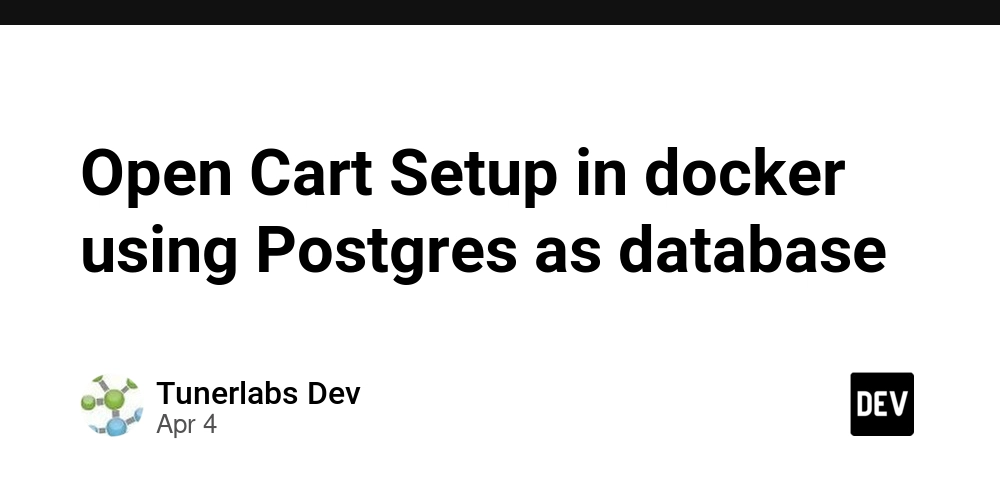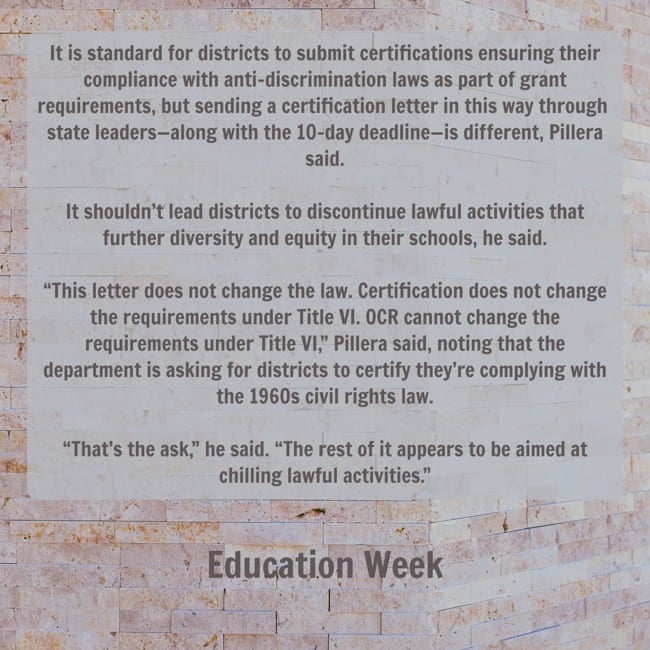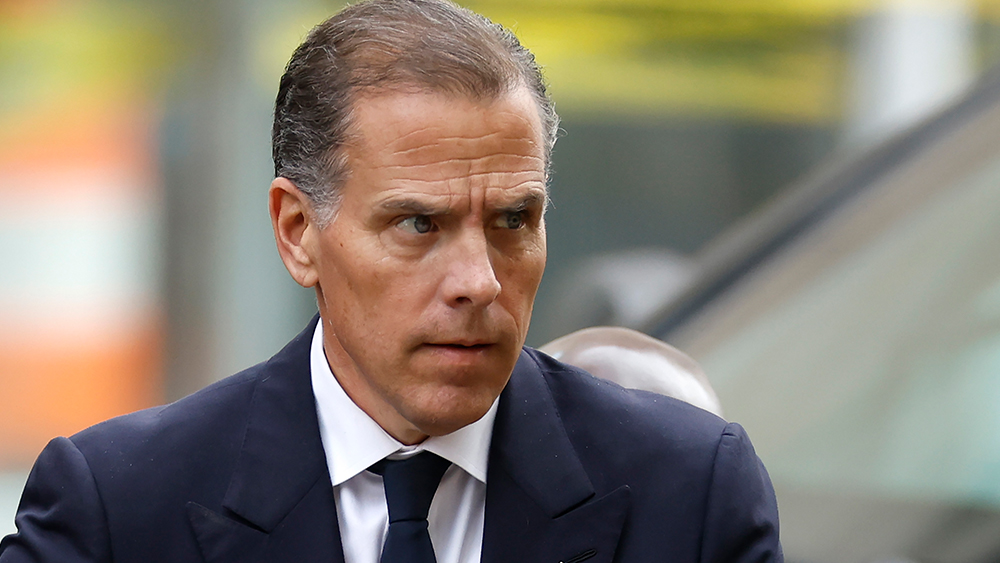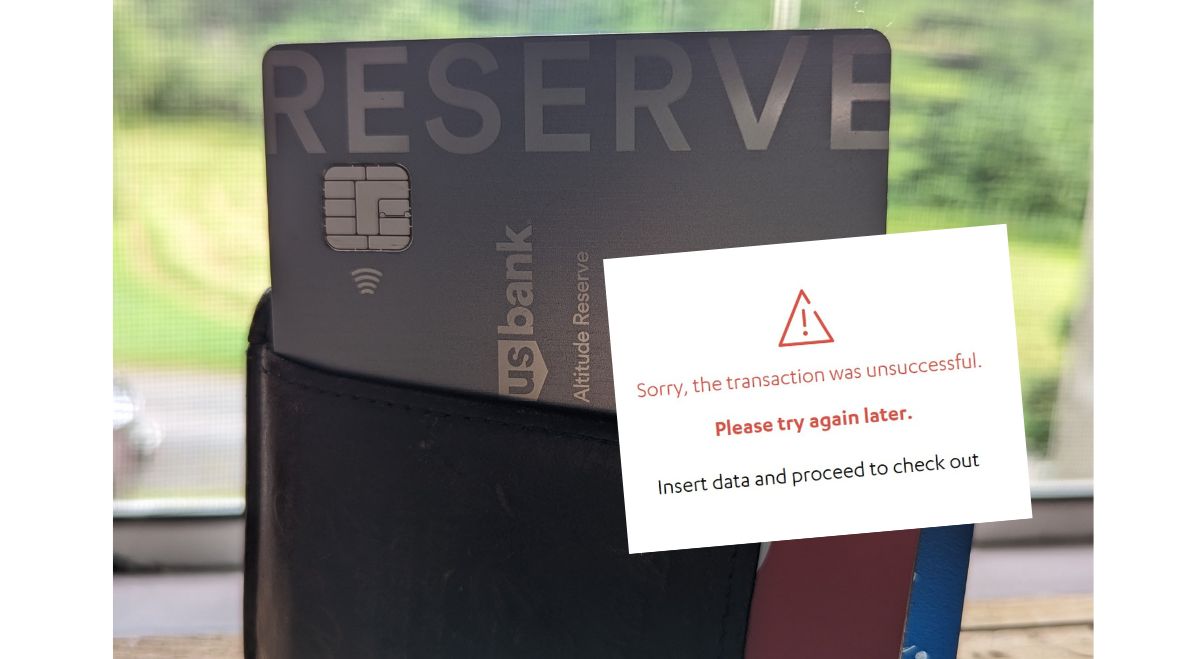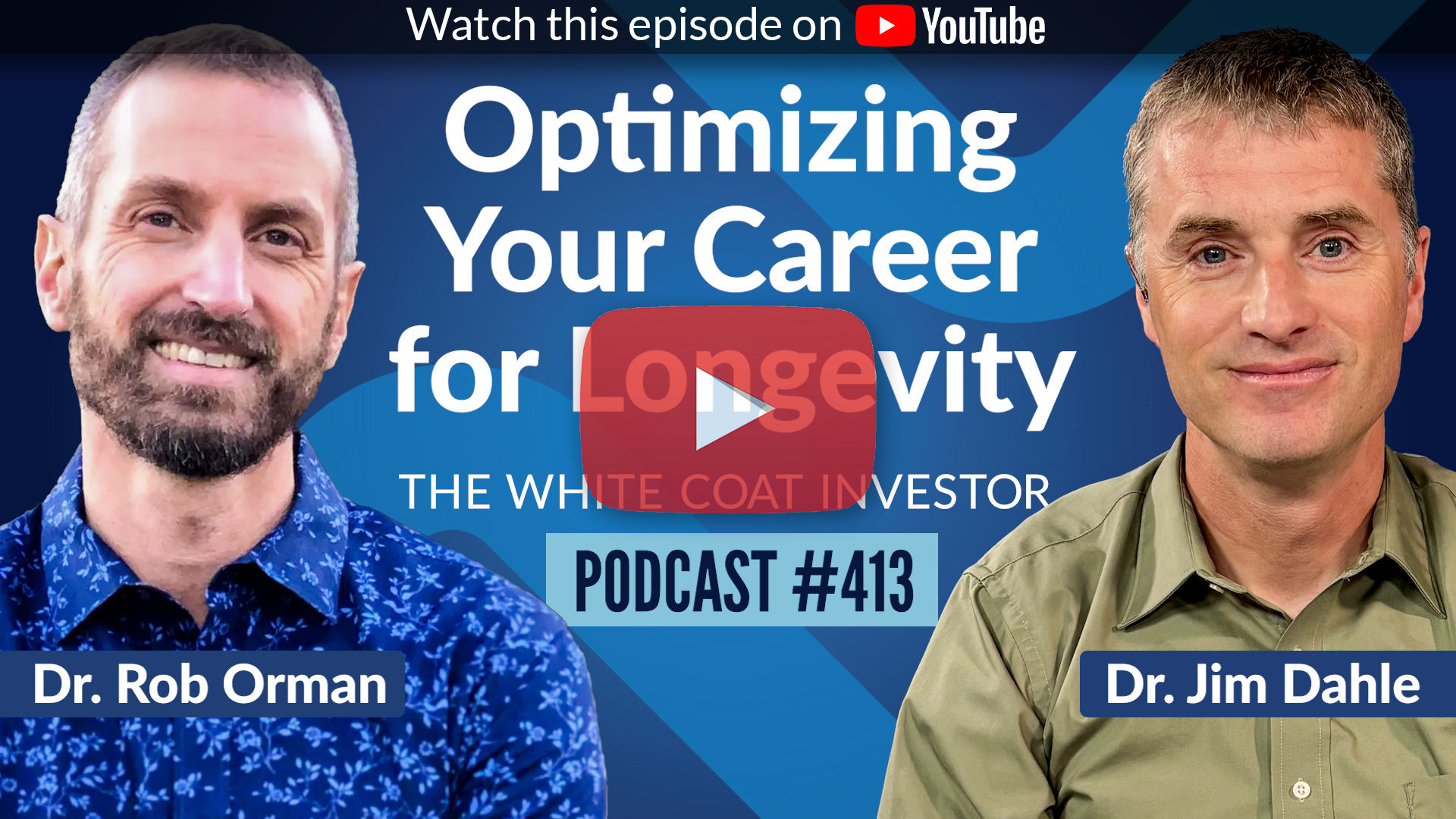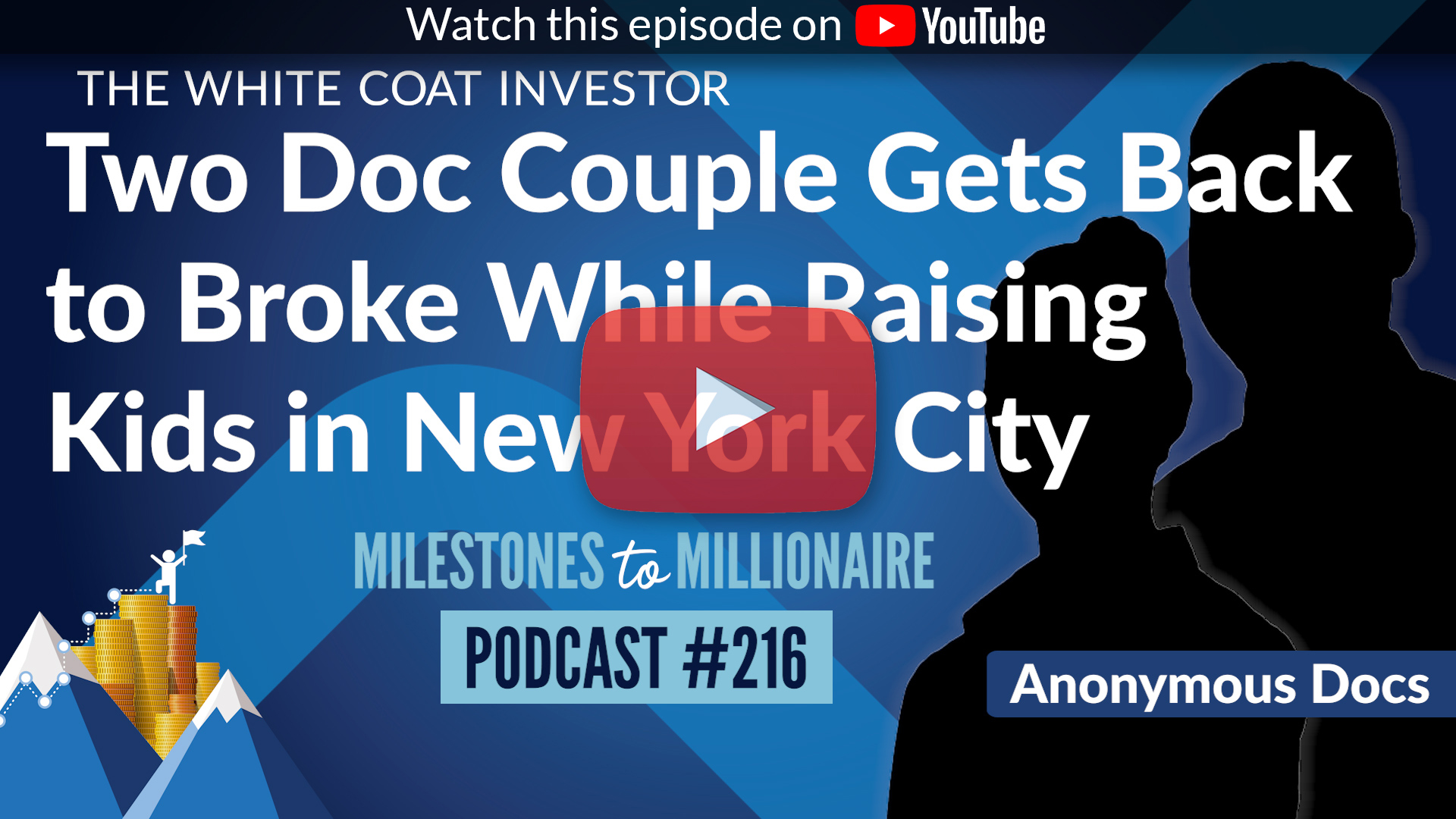Optimizing Your Career for Longevity with Rob Orman
An interview with Dr. Rob Orman, a writer, podcaster, and coach who now works with physicians to build resilience, overcome burnout, and reconnect with meaning and purpose in their work. The post Optimizing Your Career for Longevity with Rob Orman appeared first on The White Coat Investor - Investing & Personal Finance for Doctors.
Becoming a Coach After Burning Out
Rob Orman shared his journey as an emergency physician that ultimately led him to burn out three different times in his career. He later transitioned to being a professional coach, and he now specializes in helping fellow doctors recalibrate their careers. His coaching spans a spectrum—from micro recalibrations, like improving communication and mindset in a current job, to macro ones, such as finding a new role within medicine, and even mega recalibrations involving a full career pivot. He also works with physicians whose behavior threatens their employment or licensure. His mission is to enhance doctors’ experiences in life and work.
Despite emergency medicine (EM) offering flexible schedules and part-time options, it still ranks among the top specialties for burnout. Rob and Jim reflected on how cutting back on shifts—what Jim calls “returning to full-time”—can rejuvenate a career. While this works for many, Rob sees that a large number of physicians find their current trajectory unsustainable. The emotional and cognitive demands of EM—with its high volume, constant intensity, and limited recovery time—compound to create chronic stress.
Some of the unique stressors in EM include the ever-present fear of malpractice suits, pressure from patient satisfaction surveys, and the mental burden of documentation. Rob pointed out that unresolved difficult cases stick with emergency docs more intensely due to a lack of follow-up. Add to that the physical strain of skipping basic self-care during shifts and administrative pressures, and it's easy to see why burnout is so prevalent. Incivility from consultants and night-shift fatigue further erode resilience, highlighting that EM physicians often work in systems designed for throughput, not provider well-being.
Rob candidly shared his personal experiences with burnout—three significant peaks over his career. The first time, he doubled down on training and education. The second time, he thought side gigs would solve his deeper issues. The third time led to an emotional breakdown and a major life change, including moving states and taking a 60% pay cut to work in a slower-paced ED. Despite earning less, the change extended his clinical career, and it was worth it.
He pushed back on the idea that burnout is exclusive to physicians. While it affects many industries, it hits doctors harder because of their deep investment in their careers and the “calling” they associate with medicine. Physicians expect the sacrifices to result in fulfillment, so the disillusionment when that doesn’t happen feels like a betrayal. Many feel trapped by sunk costs and expectations, unsure how to pivot.
Coaching, once rare among doctors, is becoming more accepted and recognized for its benefits. While Rob believes any physician can benefit from coaching, he primarily works with those who feel stuck. Whether it’s navigating job dissatisfaction, career transitions, or behavioral issues, coaching offers a structured, goal-oriented way to get unstuck. The question he encourages people to ask is: “What is this current problem costing me?” If the answer is “a lot”—in terms of stress, money, or career longevity—then coaching may be well worth the investment.
Jim said that burnout is the biggest uninsurable threat to a physician’s career. He argued that longevity in the profession is more financially and personally valuable than short-term gains, making tools like coaching and wellness conferences the closest things we have to “burnout insurance.” He and Rob agreed that taking proactive steps to protect and extend one’s medical career is not only wise—it’s essential.
More information here:
What Emergency Docs Can Do to Beat Burnout
How My Burnout Led to Rage That Could’ve Ended My Career
Side Gigs and Career Fulfillment
Rob Orman’s career has been marked by a consistent engagement with side gigs. The work beyond his core emergency medicine career has brought him both joy and, eventually, income. He refers to these as his “clinical N+1,” meaning the additional roles and projects that added purpose and balance to his life. Whether it was starting one of the first FOAMed (Free Open Access Medical Education) podcasts or taking on teaching roles like ultrasound director, these ventures gave him fulfillment that clinical work alone didn’t always provide.
In the early days, Rob’s side gigs were purely passion projects. The work itself brought meaning and creativity to his routine. Over time, these projects evolved. He became heavily involved with EM:RAP and the Essentials of Emergency Medicine conference, which transitioned his “hobby” into something professionally and financially significant. This eventually allowed him to cut back on clinical shifts and paved the way for a full exit from clinical work after 20 years, leading to a new chapter in full-time coaching.
Looking back, Rob sees his career not as a string of unrelated side hustles but as a single, evolving project. Each endeavor built on the last, growing organically into a career centered on education and then coaching. What began as a creative outlet grew into his main professional identity. This fluid evolution shows the power of allowing interests to guide career growth, especially when those interests align with core values like education, mentorship, and personal growth.
Rob is also transparent about his biggest mistake with side gigs—believing they alone could “fix” his burnout. While his projects were meaningful and energizing, they weren’t enough to counteract the emotional exhaustion and stress from clinical practice. He eventually realized that without directly addressing the root causes of his burnout—like pace, system pressure, and misalignment—no amount of joyful distraction could compensate. Once he tackled those issues, he had more energy and presence for his medical work and his outside pursuits.
His takeaway is powerful. Side gigs can be meaningful and even financially liberating, but they’re not a cure-all. They need to be part of a broader strategy that includes honest self-assessment, boundaries, and a willingness to address deeper issues. When done intentionally, though, they can be the foundation for a truly fulfilling and sustainable career.
More information here:
How to Actually Get Paid as an Expert Witness (or Any Other Side Gig)
What We Can Learn About Work-Life Balance and Retirement from the French
The Power of Mindset
Jim and Rob dived deep into the idea of embracing the positive—not in a fluffy, feel-good sense but as a mindset shift grounded in neuroscience and behavioral strategy. Rob explained that about half of his coaching work focuses on mindset, helping physicians identify and shift limiting beliefs. One powerful example he shares is the Counterclockwise Study, in which elderly men acted as if they were 20 years younger for a week and showed measurable improvements in physical and cognitive function. The takeaway: mindset matters—it can even influence your biology.
But Rob is quick to caution against the overly simplistic advice to “just think positive.” That approach often backfires. When people try to replace negative thoughts with forced positive ones, they often strengthen the original negativity. It’s like trying to not think of an elephant—the effort makes the thought more persistent. Instead, Rob recommends practices like reframing, where you shift the story you’re telling yourself about your situation.
A big part of this is getting to know your inner critic—the voice in your head that tells you that everything and everyone, including yourself, sucks. Rather than fighting it, Rob suggested facing it head-on and even welcoming it, understanding that it’s trying to protect you (albeit in a clumsy way). It’s like a misguided friend who is well-intentioned but unhelpful. Recognizing this helps you create distance from the negativity and respond more thoughtfully.
Rob also introduces a practical strategy for escaping negative thought loops, which he calls the “What’s Next?” question. People often get stuck in “what if” or “why did” cycles—ruminative thinking that spins in circles. The antidote is action. By focusing on what to do next, your brain shifts into task-positive mode, which helps turn off the default mode network responsible for rumination. In medicine and life, asking “What’s next?” pulls you out of paralysis and into productive momentum.
If you want to learn more about Dr. Rob Orman, go to roborman.com.
To learn more from this conversation, read the WCI podcast transcript below.
Milestones to Millionaire
#216 – Two-Doc Couple Gets Back to Broke While Raising Kids in New York City
Today we have a two-doc couple on the podcast who are back to broke. This couple lives in New York City and has two young children, and they had nearly $1 million in student loans at the end of training. They have worked hard to get on the same page, save and build wealth, and still have fun living their lives in the process. They talked about the need to know what you care about and what you don't. They care more about travel than a fancy expensive apartment. Knowing what you value is critical.
Finance 101: Mortgages
Buying a home tends to happen most often between March and June, especially for medical professionals. One option available is a “physician mortgage,” a type of home loan designed for people with stable, high-income careers. These mortgages let you avoid paying private mortgage insurance (PMI) even if you don’t have a 20% down payment. Plus, you can often qualify using just an employment contract instead of pay stubs, which is especially helpful for new grads or those starting a job soon.
That said, it’s smart to take your time before buying a home—especially if you’re moving to a new city or starting a new job. Renting for six months to a year allows you to get familiar with the area and make sure your job and lifestyle are a good fit. Doing this gives you the chance to learn the local housing market, compare prices, and be strategic about your purchase. Taking that time can lead to finding a better deal and making a more confident decision.
It’s also important to plan on staying in the home for at least 3-5 years for the investment to make financial sense. Home values typically need that long to appreciate enough to cover transaction costs. Even though recent markets have been unpredictable, the long-term average still holds. And remember: you’re marrying the house but only dating the mortgage. If interest rates drop later, you can refinance and get a better deal. Resources are available online to compare both physician-specific and traditional mortgage lenders based on your location.
To learn more about mortgages, read the Milestones to Millionaire transcript below.
Sponsor: Black Swan
Sponsor
Today’s episode is brought to us by SoFi, the folks who help you get your money right. Paying off student debt quickly and getting your finances back on track isn't easy, but that’s where SoFi can help—it has exclusive, low rates designed to help medical residents refinance student loans. That could end up saving you thousands of dollars, helping you get out of student debt sooner. SoFi also offers the ability to lower your payments to just $100 a month* while you’re still in residency. And if you’re already out of residency, SoFi’s got you covered there, too. For more information, go to sofi.com/whitecoatinvestor. SoFi Student Loans are originated by SoFi Bank, N.A. Member FDIC. Additional terms and conditions apply. NMLS 696891
WCI Podcast Transcript
INTRODUCTION
This is the White Coat Investor podcast where we help those who wear the white coat get a fair shake on Wall Street. We've been helping doctors and other high-income professionals stop doing dumb things with their money since 2011.
Dr. Jim Dahle:
This is White Coat Investor podcast number 413 – Optimizing your career for longevity with Rob Orman.
Today's episode is brought to us by SoFi, the folks who help you get your money right. Paying off student debt quickly and getting your finances back on track isn't easy. That's where SoFi can help. They have exclusive low rates designed to help medical residents refinance student loans. That could end up saving you thousands of dollars, helping you get out of student debt sooner.
SoFi also offers the ability to lower your payments to just $100 a month while you're still in residency. If you're already out of residency, SoFi's got you covered there too. For more information, go to sofi.com/whitecoatinvestor.
SoFi student loans are originated by SoFi Bank, N.A. Member FDIC. Additional terms and conditions apply. NMLS 696891.
QUOTE OF THE DAY
Our quote of the day today comes from Bill Bernstein, who said, “Investment wisdom begins with the realization that long-term returns are the only ones that matter.”
Welcome back to the podcast. Thanks to all of you out there for what you're doing. We're going to be talking about a lot of things today, especially some of the difficult things in our careers, particularly physicians, particularly emergency physicians. It's not the easiest job you have. That's why you get paid so well. But that's also why you have to worry about things like burnout and managing your money well in case you're not able to fulfill a complete career. Thanks for what you're doing out there. If nobody's said thank you lately, I want you to at least hear it from me. It does matter what you're doing.
Hey, thanks also for educating your peers. Even if it's just, “Hey, you should read this book or check out this podcast or whatever.” But for those of you who are going above and beyond, that are putting together curriculums in your residencies, that are giving talks to your medical societies, that are doing whatever to really be a financial educator out there, we want to recognize you.
I'm asking those, maybe you shouldn't nominate yourself, but others should nominate you if you're doing those sorts of things. And they have until April 25th. I want you to nominate the people who have made a difference in your life that have been a financial educator to you for the White Coat Investor Financial Educator Award. This is someone that's passionate about improving financial literacy from their colleagues, trainees, their students, residents, whatever.
Go ahead and nominate them for this, for the 2025 Financial Educator of the Year Award. The winner gets a prestigious award. Okay, it's only $1,000 cash prize. But we also get to give them something that probably matters a whole lot more, which is some recognition of all the hard work they're putting in there, and hopefully inspire others to do the same and fulfill this mission of the White Coat Investor to boost financial literacy and financial discipline among high-income professionals like you.
You can submit their name and a little bit about them at whitecoatinvestor.com/educator. You have until April 25th to submit that. And if there's more submissions for one particular person that does carry some additional weight, but it's not just a matter of counting submissions. That's not how the winner is selected.
But if you go to that page, whitecoatinvestor.com/educator, I also have some slides there. You can download them. These are slides that you can use when you're putting together presentations. We believe in making financial education accessible to everyone. And I have three sets of slides there, one for students, one for residents, one for attending physicians or other people in their career. And you can download them. They're totally free. People ask me for my slides all the time. Here's some slides I put together just for you to have some slides. And you can modify them. Yes, we appreciate it if you give us some credit for helping you with your slides, but you can modify them, throw out the ones you don't like, add some that you do like, make the presentation yours.
But here's a good place for you to start. If you want to give a talk to your fellow residents or colleagues or whatever, or start putting together a curriculum, here's some slides that can help you get started. Same page as you submit people for the educator award, whitecoatinvestor.com/educator. Make sure you submit them by April 25th.
Now, a couple of rules. They can't be a financial advisor. They can't be a blogger like me. I can't win this award. They've got to be somebody who's a doc. They are actually practicing doc, but does this kind of on the side to help their colleagues. That's what we're looking for.
The winner is going to get $1,000. The best nominator though, and this is where you can win too by nominating them. The best nominator submission gets a free White Coat Investor online course of their choice. This can be our real estate course. It can be one of our Fire Your Financial Advisor courses. It can be Continuing Financial Education 2025. Whatever course you want we'll give you that for making the best submission. Thanks for helping us to recognize people and really promote financial literacy among your colleagues.
CORRECTION: QCDs
We got a great interview. We got Rob Orman here today, but before we get him on, I got to do a few corrections. Here's one. I couldn't figure out what I was supposed to correct at first. I'm like, “I said that, I said that”, but what I said was that if you want to make a qualified charitable distribution this takes the place of your required minimum distribution. You can do that if you're 72 plus. It's $108,000 this year, that number is indexed to inflation.
But what I said wrong is it's not 72, it's 70 and a half years old. Once you're 70 and a half years old, you can start making qualified charitable distributions, which is probably the best way to donate to charity if you are 70 and a half years old or older. Even if you don't have to take your RMD until 72, 73, 75, depending on when you turn that age, you can do that.
The other thing I learned that I don't think I realized before, and I'm pretty sure I never told you this before, but who knows, I hit my head really hard last summer. Maybe I've said it before, but that $108,000 per year is per person. If you're married, you can give $216,000 as a qualified charitable distribution. I didn't realize that, but that's pretty cool too.
CORRECTION: MANDATORY 403(b) CONTRIBUTIONS
All right, another correction. Somebody writes in, says, “I'm a big fan of your work, blah, blah, blah. You're a big inspiration, blah, blah, blah. I teach lots of people. You're the best.” I hope your students nominate you to be the educator of the year award. But talks about this idea that people in academics often have more tax protected space than people that are in private practice. And that's not unusual to me.
Our local university docs, they've got a 403(b) and they got a 401(a) and they've got a 457(b). That's not that unusual. But what I learned from this interaction with this doc, who's a very financially literate doctor, was that they have a mandatory 403(b) contribution, which is kind of cool. It's actually got a big match. They put 5% in and the university puts in 10% in.
But apparently because of that mandatory contribution, that 5% they put in doesn't count toward the $23,500 employee contribution limit. And they can get that $15,000 into a mandatory 403(b) as an employee contribution, they can get $30,000 saved as an employer contribution. And then they can put in another $23,500 voluntary employee contribution for getting them almost a $70,000 cap there. That's a pretty cool little feature. And if you're in that sort of a situation with a mandatory 403(b) contribution, maybe you ought to look into that. You might be able to put more in there than you thought you could. I tried to talk him into writing a guest blog post on the subject. We'll see if we get that as well.
INTERVIEW WITH ROB ORMAN
Okay, let's get Rob Orman on the line. I think you're going to enjoy this interview. It's maybe a little longer than our average interview, but it's a good chat. And it's fun to just talk to somebody who's kind of a celebrity in my specialty. So let's get Rob on the line and let's talk about his career and some of the things he's done and what he's doing now. And in particular, why burnout is such a big risk to our finances, not just our happiness, but our finances. Let's get him on the line.
My guest today on the White Coat Investor Podcast is Rob Orman. Now you may or may not know Rob Orman, but he is a celebrity in emergency medicine. I know every specialty has their celebrities. Rob's done a whole bunch of things in his life aside from practicing emergency medicine for a couple of decades. He has also run a conference. He has run what's basically the most popular podcast in emergency medicine, which is EM:RAP, as well as several other podcasts, and now does a whole bunch of coaching. He's an ICF certified coach that helps people with their careers, with burnout, et cetera. Rob, welcome to the White Coat Investor podcast.
Rob Orman:
Jim, it is a treat to be here and finally being on the other side. Had you on my show so many times. Wow. At long last.
THREE VS. FOUR YEAR EMERGENCY MEDICINE RESIDENCY
Dr. Jim Dahle:
Yeah, it's great to have you here. Let's talk a little more about your bio. You went to Emory and then you trained at Denver Health, which is a little bit interesting to me because Denver is a four-year program. Many of you out there don't know this, but emergency medicine is one of the few specialties where you can train for three years and you can train for four years.
In fact, probably the biggest thing I was looking for when I was looking for an emergency medicine training program was one in the Intermountain West, but I decided not to apply to Denver, partly because I heard some things that maybe it was really hard or a little malignant or something. Also, just because it was a four-year program, I didn't apply to any four-year programs.
I want to get your take on this, especially now that emergency medicine is a specialty, is talking about changing all the residencies to four years. I want your take on the three versus four-year program issue in emergency medicine, sometimes called the $400,000 mistake. I want your take on that extra year of training.
Rob Orman:
I'm totally biased with this, Jim. I went to a four-year program. Well, it was different when I went there, different than most of them are. Ours was a one plus three. I did a transitional year at a different hospital. Then I did three at Denver Health of basically pure distilled emergency medicine with all the other rotations in there.
When I applied for residency, first, you have this idea, “I want to go to the best place.” At that time, Denver Health still is, I think, one of the best residencies there. I said, okay, three years, four years. I actually didn't really care so much about that, except that I knew that I had a lot of uncertainty when I was a student in the ED. I wanted as much training as possible and to be as good as possible getting out. This is totally self-serving since I went to a four-year residency.
I'll say that that fourth year of residency sharpened my edge, sharpened the sword to such a high level that I felt comfortable with pretty much anything when I walked into my first attending shift. Not that I didn't make a lot of mistakes. I am a strong believer in four years of training. That being said, I myself did not experience three years. I don't know what that feels like to get out of the three-year program, so totally biased answer.
Dr. Jim Dahle:
Now, some people say, “Well, maybe I'll do a three-year residency and then do a one-year fellowship.” Do you think that's an equal option, a better option, an inferior option? How would you advise somebody looking into applying to emergency medicine?
Rob Orman:
There are so many levels to that question. Let me first say that when I would work with, I'm not working clinically anymore, I’m full-time coaching now. When I was working clinically and a new doc would come on. A lot of these docs came out of four-year residencies, didn't matter, three or four years. I would say to them, “Your first year here is your fellowship in clinical emergency medicine.”
Now, this isn't the question that you asked, but that first year out, you are figuring out who you are as an attending. And one thing that you get to do as a fellow is you work clinical shifts as a junior attending. I think that there's some benefit in that. You have a little bit of protection. You're probably working in an academic center where there's maybe a softer landing if you're not quite sure what to do.
I think that from a clinical perspective, sure, it's great. As long as you are working a good number of those clinical shifts. Just doing a fellowship, yes, you are going to get expertise and you very well may even have more fulfillment in your career because you've got that N plus one to balance out your clinical work.
I don't know that the fellowship training itself gives you that preparation or the number of procedure reps, your central lines, or just seeing thousands more sick patients in that final year because you're doing a tox fellowship or an ultrasound fellowship. It is that clinical work and getting that exposure, that continued exposure.
Fellowship, awesome. Personally, I'm going to tell you, my friend, I wish I had done a fellowship. I wish I'd done a fellowship just to have that, I guess you could call it side gig outside of my clinical work and been on that track much earlier. But I don't know that a three plus one as a fellowship does the same thing as a straight four.
Dr. Jim Dahle:
Good advice. Thanks for your perspective on it. Do you think the specialty is doing the right thing if it actually goes through with this and basically makes everybody get four years of training? Do you think that's the right thing for the specialty?
Rob Orman:
Gosh, I don't know. I've always thought that it was a bit of madness that this specialty had varying lengths of training. And what other specialty has that? I don't know of one. It says, does it take three or does it take four to get competency? And it can be argued on both sides. If it went down to three, I guess that would be fine. If it went all to four, well, that's the decision that was made.
But I think having some uniform length amount of education and exposure to cases and what you need to know, and having that be standardized, that just makes way more sense as a legitimate specialty.
Dr. Jim Dahle:
Stop the madness.
Rob Orman:
Yeah, exactly. You and I, we both remember when emergency medicine was barely considered a specialty. And it had even been around for a long time, but when we were young doctors. I am in favor of it being standardized, whether that was three years or four years. I'm not an expert to say, personally, favor four years.
Dr. Jim Dahle:
This is a financial podcast. I got to ask you a financial question about this. This was a decision that cost you some money, whether you say it's $200,000, because that's what emergency medicine docs were making 20 years ago, or a $400,000 cost, because that's what they're making today. This cost you something. Did you miss the money?
Rob Orman:
I never knew it was gone. Let me tell you, when you talk about living like a resident, I fully embrace that. My blackout blinds in my bedroom were beach towels that were duct taped up so that I could sleep after night shifts.
Now as I'm 55, I don't know any different. So sure, would it have been nice to have had another year of high income earning? Yeah, absolutely. But I think on aggregate, with all of the time that I spent getting to that point to be a doctor, it's a long haul that I wanted the best training that I could get. And I thought it was at that place, that it was at Denver Health. And that was worth it to me. If that training cost me $440,000, I don't know if I ever made that in a year as an emergency physician, but it cost me a couple hundred grand. Well worth it.
SIDE GIGS AND CAREER FULFILLMENT
Dr. Jim Dahle:
Now, your comment about a fellowship enabling you to do a side gig, I find interesting, I think is a good segue into the next topic I want to talk about, because you maintain some sort of a side gig whether it's podcasting, or speaking at conferences, or running a conference, and now you do a bunch of coaching for just about your entire career. And I want you to talk about that side gig, and that mentality that caused you to pursue side gigs, and how that benefited you both clinically, as well as financially.
Rob Orman:
My side gigs, and there's a lot of different terms that you could say. I call it my N plus one, the clinical N plus one. That brought me joy and fulfillment that I wasn't getting from clinical shifts alone. I like clinical medicine, there were aspects of it that I did not like at all. But doing things like starting a podcast, and years ago, that was called ER cast, which is since gone on to be under HIPAA education, but it was one of the first FOAMed podcasts, I was a ultrasound director, hashtag – Never had an ultrasound fellowships when you could do those things back then.
And so it was joy, it was fulfillment, it was a stroke in my career. And that was in the early stages, just having something in addition to what I was doing, seeing patients to bring me joy.
In the second phase of my career, I guess the second phase of my side gigs, they still were aligned with what I would say is my purpose, which is the lens with which you view what you're doing. For me, education, teaching. But it also brought in compensation. And at that time, you mentioned MRAP, I was working MRAP or HIPAA education, and working on essentials of emergency medicine, this large conference, it's now defunct. But that brought in compensation, so I could start cutting back on shifts.
In the beginning, totally purpose focused. And man, we were talking about this before, I was podcasting with this little blue snowball, first generation mic that probably started to sound like I was speaking in a tin can. Very first podcast I did was on a cordless phone, man. It was just for fun, just for joy. Then it became part of what I was compensated. So it started to have a bigger footprint in my life.
And ultimately, I was doing so much education, I was running EM:RAP full time, then it was running ER cast full time and getting paid for that. And essentials of emergency medicine, I had an exit strategy from emergency medicine. And at that point, I was 20 years in to my clinical career. And I was good to go, I was good to move on to something else, which was full time medical education. Now it's full time coaching.
I'll say this as I'm going through all these side gigs at the beginning of my career, 1999, fresh attending. Jim, if you would have said, “Hey, man, here's what your career is going to look like in 2025”, I just would have had mouth agape. I wouldn't even know what you were talking about because all of those side gigs, putting them all together, they kind of gave me this chance to explore and grow in addition to seeing patients.
Now is this kind of amalgam. I don't even see it as serial side gigs. I see it as this single evolving side gig where one thing grew into the next. And what began as just almost a hobby has become my career.
Dr. Jim Dahle:
For those of you who aren't docs, and I know most that listen to this podcast are docs, but there's a sizable percentage of you that are not. In medicine, sometimes we have a conference that we call M&M – Morbidity and Mortality, where basically we analyze mistakes that doctors make in hopes that we won't make them anymore. And if it's somebody else's mistake that we won't make that mistake and end up in front of this conference.
But let's do a little bit of M&M on your side gigs because doctors love hearing about mistakes so they can avoid making them. What mistakes did you make along the way doing these side gigs? And what did you learn as you went along and maybe wouldn't have done the exact same way?
Rob Orman:
I want to tell you about the big mistake. There's so many little ones, which could be an entire podcast. Every mistake I've made was side gigs / business. But we'll talk about the big picture on the things that I was doing during my clinical career. And I think that the big mistake that I made was thinking that my side gigs, these things that were just aligned with purpose, filled me, fed me, that these things alone would solve the burnout I was experiencing.
I thought if I could just be extra happy with teaching and podcasting and speaking, that that would outweigh any misery that I sometimes or often felt driving into work. It doesn't work that way. I thought it would. I thought that that would be kind of the cure.
Eventually, I figured out that I needed to address the root cause of what was burning out, how burnout was showing up. And once I did that, way more bandwidth for the job. The job was awesome. Way more bandwidth for the side gigs. Everything changed. But that was a big mistake that went on for many years.
BECOMING A COACH AFTER BURNING OUT
Dr. Jim Dahle:
Let's hear the elevator pitch now. Tell us what you're doing now. You do this coaching, you help people with burnout. Give us 30 seconds explaining exactly what you do and where they can go if they want to contact you for help with that.
Rob Orman:
I help physicians recalibrate their careers. And that can be micro recalibration, which is within your current job, such as mindset, efficiency, shift structure, communication, dealing with difficult consultants, all of the things that are contained within the work you're doing right now. That can be more of a macro recalibration, which is more like a remodel. “All right, I still want to stay in medicine. But the place I'm working now is not working out for me.” – All right, let's help you find something different, but still have that physician income.
And then there is the mega recalibration. That is a reinvention or rebuild. “I want to do something else that's not seeing patients. I don't know what that is. Financially, that's scary.” Okay, we will recalibrate in that way. Whatever it is, the docs have, in some way, lost that love and feeling for medicine. Or, kind of a side category, they have a behavior that is not serving them. Do quite a bit of behavioral coaching where they're doing something or acting in a certain way that is not concordant with the values of the hospital in which they work and they're about to get fired or lose their license. And they need a recalibration of their behavior. My ultimate goal is to elevate the experience of physicians in their life and work.
Dr. Jim Dahle:
Very cool. And they contact you where?
Rob Orman:
They can contact me, my website is roborman.com.
Dr. Jim Dahle:
Okay. Now, we're in this specialty where when we got in it 20 or 25 years ago everybody said emergency docs burn out. And we said, “Well, those were people that didn't train in emergency medicine.” You remember these discussions we had?
Rob Orman:
Yeah.
Dr. Jim Dahle:
And clearly, emergency medicine is one of those specialties where it's actually not that hard to work less, to work fewer shifts, to do locum tenens, to go part-time, etc. This is my favorite burnout treatment. When people tell me they're burned out, the first suggestion I have for them is “Why don't you cut back to full-time?” But EM is still at the top of the specialty burnout charts every year. Why is that? Why are we still there?
Rob Orman:
Yeah. I want to address what you just said there. I was speaking with a buddy of mine who's an orthopedic surgeon that we had spoken about this years ago. I can remember when he was super stressed in his job. And we're talking about, man, because this is a strategy if we do an emergency medicine, just work less, have more time to recover, more time for your life and your love. And we were actually talking yesterday. He said, man, “Once I did that, my career is awesome. I could do this indefinitely. And I'll take an extra call. I don't care. I've just got bandwidth. I got time to recover.”
I don't think what you just said, Jim, can be oversold, that doing less of it in the long run, you will make less money month to month, but your career can be extended for so long. It's almost like, “Really? That actually works?” Yeah. It works for so many, not for everybody. You and I have both seen that.
I would love to hear your take on this stuff with what is it about emergency medicine? And there is totally going to be a selection bias here. I just want to tell you what I see when docs come to me who are burnt out, what is it that's burning them out?
I'd say about 80% of the docs who I talk to say that their career is not sustainable as it's currently gone. I want it to last a certain amount of time or to feel like I need it to last a certain amount of time. And I just don't see that happening. I think that in the big picture, emergency medicine, more than any other specialty, I'm not sure another way to say this, but it's just a lot. It's just a lot. Other specialties experience some of the aspects of what EM does, little pieces here and there, but not with the same density, frequency, intensity, and exposure.
I want to get into some of the unique stressors that clients come with. I coach emergency docs and critical care docs, and there's definitely overlap, but there's some stuff specific to EM. What do you think about that, Jim? That EM is just a lot.
Dr. Jim Dahle:
Yeah, for sure it is. Those of us who go into it, we'd like to think that we're the ADD docs of medicine, that we don't want to know what we're going to be doing when we go into work. I can't imagine going in and having access to my schedule of what I'm going to do that day at the beginning of my shift. That sounds terrible to me.
But that uncertainty and the change throughout the shift where it goes from dead to crazy, I think gets to people after a while. Especially, and this is the same in most specialties in medicine and many similar professions, actually, is we have less control over our jobs. I own my job. I'm in a small democratic group. It's gotten a lot bigger since I joined it 15 years ago. And yesterday at our staff meeting, our partner meeting, we found out that the bigger group is going to have some say in how we pay our APCs and how much we pay them. And we're like, “Great, we're losing more control.”
And so, I think that loss of control really does contribute to burnout in any specialty. And I think EM has seen a lot of that in the last decade. I think there's a lot fewer small democratic groups where you get to have significant control over who you work with and when you work and how you pay yourselves and how you staff the department.
And that results oftentimes in the profit counters making those decisions. And all of a sudden, instead of seeing 1.5 patients per hour, you're seeing 2.3 patients per hour. And a shift is dramatically less enjoyable when you're seeing 2.3 patients per hour than when you're seeing 1.5 patients per hour. It's just not fun. And I think that has contributed a lot to what we see in emergency medicine.
Rob Orman:
That, with the rise of the contract manager groups or corporate management groups, you hear so much more of this, of docs working way more than they want, or you have one doc with two APPs managing this massive ED, and everybody is just pinned. And yeah, that loss of autonomy, which we have seen over the years, I think has corresponded with docs feeling more burnt.
But I think that even without that, just how emergency medicine is, each shift, you were alluding to this, is so full on. It takes so much focus and energy for a single ED shift. And during a shift, there's a moment of overwhelm almost every day. You get to three or four hours in, and now patients coming in, patients need to be discharged, calls coming in. It's the juggle. It is task saturation every day. And that's a bit of stress. And some handle that better than others or differently than others.
That stress accumulates, especially if you don't have time to recover. And what you're talking about before, that is connected to too many shifts. And the outside world says about emergency medicine, “You work so little. Why are you complaining?” But in emergency medicine, a single shift has a really big footprint. I think that's one, is overwhelm and pace. And that was the one for me. That was my nidus for burnout.
There was also some of this other one, which is fear of being named in a med mal suit. I've had many docs come to me say, “I have this fear of being sued with every patient.” And yeah, that's why I have malpractice insurance. You are going to see someone with a subtle or atypical presentation of a life-threatening disease. They're going to go home and maybe die. That might happen. Not 100% chance you'll be sued, but for many docs, the fear of being named in a med mal suit is a specter that's always there. And those suits, we see, wow, they can be totally capricious. Anyone can sue based on anything. Doesn't matter.
Entitled patients and patient satisfaction surveys. This seems to be more and more of a stressor. I call it maybe more of a micro stressor and the disproportionate importance placed on patient satisfaction and the way that those surveys work. And they're so problematic and they only evaluate discharge patients, not the ones that you put the most time and energy into.
Documentation. Massive stressor, an albatross of many ER docs. Unresolved bad cases. You see this one person, you have no follow-up, something goes bad, you don't process it, it sticks with you. That happens with many other specialties. I think it's more intense and acute in emergency medicine.
Also in EM, there's this ridiculous self-imposed stuff like, “I don't have time to eat or drink or go to the bathroom.” Don't take care of ourselves during these intense shifts. You can do that for a day or a week or a month, but over years, that adds up.
Administrative oversight. There is a disproportionate amount over EM docs. Every specialty has administrative oversight. EM docs from what I see, what I hear, what I felt, bigger footprint. Also, and this is such a common one, Jim, incivility from consultants. Not everybody gets this, not every hospital has this, but usually there's one or two consultants in a hospital that when you see them on, “Oh God, it's this again today?” Nobody wants to get a call from the ED, this cold call while they're busy doing all this stuff.
When a consultant is not civil or is hostile or is rude or dismissive or obstructive or obtuse, intentionally obtuse, that drains you. This seems to be more frequent when emergency physicians call other specialties. It wears on you.
We have an anti-burnout course, this is one of the modules that we have. We spend two weeks on navigating the difficult consultant. We can keep going on. Night shifts. Most specialties are like, “Oh God, I got to be on call.” EM, oh, you're just going to be up all night after shift residue. You're so full on for the day, it is hard to reintegrate into civilian life.
I'll say that, not the final one, but let me just put a bow on this. As an emergency physician, and I don't even remember the first time I heard this, not my original idea, but when I heard it, it's like, “Yeah, that is so true.” The system that you work in was not made for your wellbeing. Some hospitals, it's way better than others, but the system is not made for your wellbeing. It's made to work in the system. You are a piece or a part or a player in that system. Most emergency physicians don't get to design their practice. Your position fits into a system for that system to work with throughput and billing and all of the things that make a system functional, not for the wellbeing of the clinician.
Dr. Jim Dahle:
Yeah, there's a lot that goes in there for sure. When I became financially able to, the first thing I dropped was the night shifts. I didn't like them. I never liked them. I didn't like them even in residency. There was no doubt that that was a dramatic improvement in how much I liked my job when I quit working the overnight shifts.
Decreasing shifts also had a similar effect, but nothing like dropping the nights and not being there in the hospital at 03:30 in the morning. When you get that achy feeling, your body's telling you, “You should actually be asleep right now.” Meanwhile, you're practicing a totally different kind of medicine at 03:00 AM than you're practicing at 09:00 AM. It's just a different group of patients with a different group of problems. A lot of times, it's maybe not as enjoyable to take care of.
Rob Orman:
It's funny as I hear you say that, Jim. I loved what happened on night shifts, just the weirdness. There was this filter that only certain things would seem to come through on a night shift. What a night shift does to the body, I don't think there's any getting around that. Actually, I worked nights right up to the end of my clinical career, but fewer and fewer of them. I missed what happened on the night shift because you didn't have to deal with any admin nonsense. It was kind of, “Wow, we're almost on damage control mode here.” It was sort of fun.
Dr. Jim Dahle:
Yeah, it's different. Depending on what you like and what you don't like, almost everybody loves the people they work with on night shift. It's a different group of nurses working nights. That aspect of it can be a lot of fun, but going to Europe once a month, essentially, which is what I was doing by changing my schedule to work night shifts for three or four nights and then coming back. You basically have jet lag every month. Those of you who've never experienced jet lag, I'm sure most people probably have that are listening to this podcast at some point or another. Imagine dealing with that three or four days of jet lag every month. That's what working night shifts regularly will do for you.
Now, let's get a little bit personal here, Rob. You've talked about burning out three times during your career. I want you to tell us about each of those episodes, what they had in common, how they differed from one another. Let's kind of see burnout through what a real doctor went through during a two plus decade career.
Rob Orman:
Looking at the definition or the big picture of burnout. You've got cynicism, decreased personal efficacy and emotional exhaustion. Emotional exhaustion, that was mine. What all of the aspects of burnout had was this sense of, “This is no longer sustainable.” There was also this intense dread going into work, this pit, the pit in my stomach.
I remember a day or two before work, the dread would start, especially if there's a string of shifts, I'd start to feel that pit. As I was driving in, it would kind of reach this crescendo. Interestingly, once I started seeing patients, it went away. There was a different kind of stress, but that anticipatory dread went away because now I was actually doing the thing.
All of the, I'd say, burnout peaks had a similar root cause, which we talked about this a little before, but that was pace and overwhelm. I know this now, what I'm about to say, I didn't know this then, is that I thrive in serial processing, one thing at a time, going deep on one thing. In the recess bay, oh my gosh, loved it, loved it. A bunch of patients all at once, don't love it.
Parallel processing, I found it hard to keep up. I was working at an incredibly busy hospital. It was the second busiest hospital in the state. Actually, I saw one of my old partners yesterday, we just ran into each other. He said, “Oh yeah, we still talk about you, man. When new people come to work here, I'll say, hey, you guys have heard Rob Orman talk about burnout and how this shop where he worked, it was just so busy, he just kept burning out, burning out. Well, guess what? That's this shop. That's this place.”
I was working in an environment which was just not aligned with how I operated. I was continually stressed. I was thinking, “Oh, do I need to do a different specialty? Do I need to just get out of medicine?” The difference between the three peaks of burnout that I had was what I did to address them.
For the first one, this is probably a year or two into attending hood. You just have this sense of this is just not sustainable. I think I probably would say that and mutter that in my breath. “I can't keep doing this. I can't keep doing this.” I started learning more and investing more in being an excellent emergency physician. My wife and I, she's also an emergency doc, we were going to conferences, going to airway courses, doing lots of CME, investing in this craft or calling, doubling down.
At that time, probably two years in, I was getting the applications to anesthesia and optho. My wife said, “Why don't you see if you can be really good at this specialty first and keep in it?”
The second peak of burnout was that when I started getting into medical education, doing these things that I really loved. I was talking before about the mistakes. Every time I got deeper into medical education, it was like this pressure release valve, this purpose driven, purpose driven, let off a little bit of steam. But the fundamental issues were still there. They were not directly addressed or fully addressed.
The third one, this one really peaked. I'll tell you, Jim, I cracked. There was an event where I was just shocked that I was basically screaming in my car as I was late for work, just this primordial scream. I was like, “Wait, wait, wait, wait. This is who I am? This is what my life is after all of these years of trying to get to this point? Yeah, this is it.” I could not keep practicing the way that I was. It was truly not sustainable.
I'll tell you, the shop where I was working? Amazing. Amazing group of docs. It just wasn't for me. I was like, “Oh, okay.” I kept at it. I kept at it because as a doc, you are not someone who is ever defeated. I can always overcome. It's like, “Hey, you know what? I guess I was defeated by this job.” That was super freeing.
At this point, it was 12 years in, I did a major or I guess a macro recalibration of my career and I went to a smaller community ED. Since my challenge was pace, I put all kinds of things into place. It's like, “Okay, I'm going to see if I can make this place work. What can I do to manage this high pace, this high patients per hour?” None of it worked.
I went to a smaller community ED instead of the super busy suburban place where I'd been. My wife and I wanted to move to this community. We actually moved to a different state. I took a big pay cut. The job where I was working, you can imagine, suburban hospital, super busy, democratic group. I was making a lot. I took a 60% pay cut because there were just not many EDs in this place where we wanted to work. The only game in town, one of the only games in town, it was so worth it. It extended my career for years. If the price that I had to pay for that was 60% of my current income, still worth it.
Dr. Jim Dahle:
I run into burnout skeptics every now and then. They're like, “Burnout? What are you talking about? There's a support group for that. It meets every Friday night at the bar.” I wonder, is burnout really a physician-specific issue or do we just get more fixated on it because we expected our career to provide all this fulfillment for our life?
Rob Orman:
I don't think it's a physician-specific issue. I guess surveys of what's happening with this would say, yeah, it's not just doc, it's many other industries. But I think it just seems more shocking and in your face. This is just my take on this. Physicians put such a massive investment into their careers, what it took to get to this place, med school, residency, attending hood. Our experience, even in college, Jim, our experience was very different from people who were going to business school. What were their lives compared to the pre-meds or law school?
Medicine is also seen by so many as a calling. Then you get to this point of you have invested so much of your life and then experience this burnout. Also, physicians are such an incredibly valued asset to society. You put all of those things together from the personal, the experience of the physician for how physicians are needed by society. Then it's like, “Whoa, this seems like a crisis.” We have this expectation, talking about it to inside baseball as a doc, that it's going to be one way, that it's going to be great, or I know it's going to be hard, but it's going to be so fulfilling that we're going to be a certain way, that all of this work is going to be worth it.
Actually, I was talking with a client the other day. We were having a discovery session. They said, “You know what? I feel duped. I feel duped.” I love that word. “I thought medicine was going to be this one thing. I worked so hard to get here. Now I'm doing the job. I would never advise my younger self to do this. There's just so much BS in it, but there's so much sunk cost. I put so much into it. I feel like I can't leave right now.” I think it's just more striking that it is occurring with physicians.
Dr. Jim Dahle:
Now, you're obviously a big believer in coaching at this point. You work as a coach. Which ones are going to benefit from having a coach, and how can they recognize, “I need a coach?”
Rob Orman:
It's definitely more normalized now. When you and I were starting, it was a rarity. Nobody knew what a coach did or who a coach was. Now, it's much more common. Articles in the New York Times about, “Oh, yeah, every physician should have a coach.” To some degree, yes.
I want to speak from my own personal experience coaching. There's so many different types of coaching and coaches out there that from a 30,000-foot view, I think any physician could benefit from having a partner to optimize their experience in medicine. I work with leaders. They're not burned out. They're not seeking a recalibration. Someone says, “Oh, I want to work through my ideas and challenges I have in leadership, and I just want to have a partner to do that.” Great.
I think there's not anybody who wouldn't have a benefit from working with a partner through their career to figure out challenges and come out with actionable steps to move forward and build momentum.
The docs that I primarily work with, not all, say 85%, to some degree feel stuck. They feel stuck and they want a partner to help them get unstuck. This is going to come back to “How do you know that coaching is something that might help you?” I'll see if where I land with this satisfies that answer, and I totally want you to push back if it doesn't.
Getting back to the stucks, “I feel stuck somehow in my career.” Now, that could be “I feel stuck in my current job or I want to work somewhere else. I don't really know what that looks like. I want to do an entirely new career. I've got this behavioral issue.” Many of the things I've talked about before of “I don't know how to solve this.”
All of these things have different approaches, but they start from the same place. “I feel stuck. I don't know how to get unstuck.” On a deeper level, or maybe it's a more superficial level, I don't know. Coaching is not cheap. The first question is, “What your current challenge looks like or your current problem? What is that costing you?” If you look at what a coaching engagement costs, does that cost less than what your current problem is costing you?
From a purely financial perspective, if you're not going to be able to continue in your career and generate income for several more years, that's going to cost you a lot. That's super expensive. There's also psychological costs. We've been talking about burnout. Stress, residue from the shifts, just emotional exhaustion. You and I both know, I've had several partners, emergency docs who died young for what could have been deemed morbidity, mortality related to stress.
The first question is, “What is this problem costing me? Is it worth it to pursue this coaching? And is this something I'm currently solving on my own? Am I moving forward solving this?” If the answer is yes, if I'm in the process of solving it, I'm figuring it out, I'm doing fine, and or it's not costing that much, don't worry about it. I don't think coaching is the answer there.
But if it does cost a lot, either physically, emotionally, or the length of your career, the longevity of your career, you're not able to solve this on your own, which is not always easy to admit as a physician, then coaching is totally worth it. Clients who get coached, and this is not just through me, I have a coaching partner. We have a bunch of coaches that we also speak with. Clients who get coached, and this is the feedback from coaches, are almost universally stoked that they did.
Dr. Jim Dahle:
I've often said that the biggest financial risk to your career can't be insured against. It's burnout. It's not being able to continue it. You should optimize for longevity with every career decision you make. You're far better off working for 30 years as a pediatrician than you are working for eight years as an orthopedist. It's just the way the numbers work out. You got more time for your investments to compound. You pay less in taxes overall. You have more years of social security contributions. It just works out better to have a longer career than a shorter career.
Things like coaching, things like our Physician Wellness and Financial Literacy Conference, these are the closest things you can get to burnout insurance. People will gladly buy disability insurance and should. Don't get me wrong, they should buy it, having disabled myself falling off a mountain last summer. But you can't really just buy straightforward burnout insurance. It doesn't work like that.
Rob Orman:
I love that framing of it. Just like you fell off a mountain, you never know if you're going to need it.
THE POWER OF MINDSET
Dr. Jim Dahle:
For sure. You have said in some of your writing, some of your speaking, to embrace the positive instead of the negative. My wife tells me this sort of stuff all the time. Think about the positives, not the negatives. It feels wishy-washy. Obviously, that's a smart thing to do. You're going to be happier if you embrace the positive. It sounds easy. I'm not sure it's actually easy. How do you teach people to embrace the positive?
Rob Orman:
Oh, my God. Have I really said that, Jim?
Dr. Jim Dahle:
I think I've read somewhere that you wrote embracing the positive is important.
Rob Orman:
Oh, geez, Louise. Okay. All right. Let's get into it. I'd say 50% of the work I do with physicians is mindset. That could be mindset on this thing that I have a negative view of or mindset of this limiting belief of something I think I can't do.
Let me address that first, mindset. Does mindset make a difference? We have this inherent sense that it does, that how we approach something or think about it will impact the outcome. The evidence on this is so revealing.
Have you ever heard of this study? It was done in the late 70s called the Counterclockwise study. This was one of the first true studies done on mindset. What the researchers did, they took a group of men in their 70s. The study authors built this retreat center, this house that was isolated from the rest of society in the woods.
They set it up so that it would look like it was 20 years earlier. The TV only played shows from 20 years ago. There were magazines and newspapers. The clothes that these men wore were from 20 years ago. They were told to speak about events from 20 years ago as if they were the present tense and act as if they were in their 50s. It's just, I want you to think and act as if you're in your 50s, even though you're in your 70s.
What's going to happen with this? They did this for a week, just one week, and it shifted their mindset. At the end of the week, their mental acuity had improved. Their physical flexibility had improved. This shocks me. Their eyesight and hearing had improved. When others, they had independent observers, looked at before and after pictures, the after pictures, they're like, “Oh, well, this is them at a younger age.” This was just a mindset. What a difference that makes.
Back to your question, embracing the positive. I want to give what you said some credence here, is that there is a trap in “Just embrace the positive.” Was it Stuart Smalley on Saturday Night Live? I'm good enough, I'm smart enough, and doggone it, people like me.
There's a trap in just say, “Oh, think positive.” That thought replacement, replacing a negative thought with a positive one rarely works or doesn't work. What usually happens with that is that the negative thought often gets stronger. It's very hard to just put a thought out of your mind. Come on, come on, Jim. Don't think about an elephant. Don't think about it. Get it out of your mind. Get that elephant out of there. That's just not the way the mind works.
What does work are things like reframing, which is the story that you are telling yourself about what's happening. We see this all the time. You probably have this in your group. You got one person who's just whining, whining, whining. They hate their job. Another person loves it. They can't believe they're so lucky getting to do this job.
One reason is the narrative that they are applying to this same situation. If you want to know how to tactically do this, I know you love to get into the granular details. The first thing, it seems almost like a paradox, is to get familiar with the negative inner voice, the one that is saying, “Oh, this sucks. You know what? You over suck. You know what? I kind of suck. I suck. You suck. This sucks.”
This inner critic criticizes all these three things. That inner critical voice touches on so much. There's a lot of exercises to work through it. We have a three-day conference just looking on this. And how do we work around it is to not to fight it, but to face it head on and actually welcome it. That voice, that inner voice, that negative inner voice telling you, “Oh, God, this is horrible.” It's actually trying to help you, trying to protect you. It's like a friend who wants to give you advice, but maybe it's like the friend's a little bit drunk and it's often not good advice. Certainly doesn't bring joy, but it is trying to help.
Once we are able to identify that and stop struggling against that inner voice, that inner critic, inner critical voice, we can then reframe the situation or recalibrate and decide, “How do I want to show up here? How do I want to show up in this situation?” This can be months of work with a single physician. But if we're going to say, here's a tiny tool that you can do next, next shift, or when you're done listening to this podcast.
We get stuck in “what if” and “why did” loops? “Oh my gosh, what if this happens? What if I get fired? What if there's an outcome? What if this, what if, what if, what if? Or why did? Why did they say that? Why is this happening? Oh, why is this happening to me? Why does the administration do this?”
That is a negative ruminative cycle. There is the question that you're answering in your mind. If we're going to get into the neuroscience, that lives in the default mode network. Not exactly, but if we're speaking in generalities, the part of your brain that has that ruminative non-focused thought.
To switch from that is not so much of saying the answer of, “Ah, okay, this is good, this is good.” It is switching from “What if, what if, what if to asking the question, what's next?” Action-oriented. Action is an antidote for negative rumination. Rumination is generally negative thinking. Action, which lives in a network of the brain, the task-positive network, and these things are like a toggle on-off, when you turn action on, you start turning rumination off. You're putting in a chest tube and it goes awry. It's kind of, “Oh my gosh, this is horrible. What if, what if, what if?”
All right, let's come back. Let's put this into sequence. “What's next?” What's next? Reprep, make a new hole. “Here's what I'm going to do differently.” Action, antidote for negative rumination. It's not a panacea, that's just one example of shifting out of that negative thinking and reframing it into, “How do I move forward?”
ROB ORMAN’S FINANCIAL JOURNEY
Dr. Jim Dahle:
Love it. Super helpful. I love that shift from rumination to action. Now, Rob, this is a financial podcast and we've been talking about things that you know a great deal about, which is emergency medicine, as well as burnout and coaching and so forth.
But because of our focus on finances on this podcast, I'm also going to ask you to tell us about your financial journey as a physician starting as a pre-med until now and maybe looking forward to whatever final retirement looks like. You've had obviously a switch out of clinical medicine more recently. In as much detail as you feel like sharing in a way that would be informative for our audience as they struggle through their own individual financial journey as a physician.
Rob Orman:
Oh, Jim, I don't know if I've ever told you this story when we've done other shows together, but some of this is not going to be pretty.
Dr. Jim Dahle:
It would be unusual if it all were pretty, to be honest with you.
Rob Orman:
Yeah. It's so funny that we have this massive expertise in one area or maybe a couple of areas and as young doctors, hopefully now that you're putting out your stuff and people are getting more financially savvy, we don't think that we have domain transfer of that expertise into everything like finance, but I certainly did.
Let's just take the time machine back a little bit. When I was a first year attending, I had $15,000. I just had $15,000 of basically savings. And I was somewhere, I don't remember where it was, but I was somewhere that I heard these people talking about an amazing company called Lucent Technologies. And it was so undervalued. And it wasn't like I was, “Oh, I'm eavesdropping getting inside information.” I joined the conversation. I said, yeah, this is so undervalued. And they were going to pour a ton of cash into Lucent because this stock was going to go crazy.
Jim, my friend, I did not know anything about finance. I had not read the Motley Fool or any of these things back then. I just thought I'd seen Wall Street and Gordon Gekko, and you can take a hundred dollars and come away with a million. I thought that's how this stuff worked. I thought, “Oh my gosh, this Lucent Technology sounds like a major win. I'm going to get a 10X return. I'm going to $15,000 in this, come out with $150,000, which was my salary, my first year of attending hood.”
I put all of my money into that single stock. Oh, Jim, I was getting ready to wear a top hat and a monocle. I couldn't believe it. And Lucent went from $70 a share. I think I bought it. Here we go, here we go. It went to $1 a share very quickly.
Now, $15,000, it's a lot of money. It's not a massive amount of money to what I would make later in life, but that was everything. That was everything that I had. Oh my God. I'm shaking telling the story right now. That was a hard lesson to learn Jim. And your listeners might be listening, thinking, there's pretty savvy, like, “What an idiot. What an idiot.”
Oh my God. I'm feeling flushed. Anyone watching the video, you probably see the sweat on my forehead. My wife and I get married and she's also an emergency physician. And this is an open book. If you want any more detail on this, I'm happy to provide it, but we'll just skim the surface here. We had about $80,000 between us. Well, we had exactly $80,000 between us.
We did two things that set us up for success. And in between this, I had read books and I was really into the Motley Fool at that time. It was this “Put your money in index funds and reap the rewards.” And great. So I started doing that.
Dr. Jim Dahle:
I'm so happy that's the message you took away from the Motley Fool. Because there's a lot of messaging coming out of the Motley Fool and it's not all invest in index funds.
Rob Orman:
Okay. This was when the Motley Fool had just one book. I don't know what the Motley Fool is now, but back then that was it. It's this, “Hey, here's what happens with the stock market over time in our lifetime. It's going to rise, it's going to fall, but over time it's going to rise. And if you invest in index funds, you're going to be fine.”
Most of what we had was our retirement account, because we're both working in groups where we had 401(k)s and I can't remember if we had matching or not, but I was running our Vanguard account and trying to figure stuff out there. I'll tell you, I didn't love it. I did not love doing that. And that'll come up in a moment here.
But we read a couple of books, probably the most important book we read. I don't know if it's still in print. I think it was called The Road to Wealth by Suze Orman. There's so many great books Rich Dad Poor Dad, The Mindset of Money or Money Mindset. There's just so many great books on this. And I think any of them are going to put you in the mindset of what is my mindset about money.
The Suze Orman’s book really helped us with mindset. And it had the basics of “How do you buy a house? Should you buy a house? What is mortgage insurance?” Okay, Jim, if we're getting inside baseball here, when I bought my first house, I was a resident and this house cost $153,000. Which at that time, I think I was making $30,000 as a resident. It could have cost $10 million.
And when I bought that house, I got mortgage insurance. And I thought, “Wow, this is awesome. My mortgage is insured. This is great.” I didn't realize that this wasn't something that I wanted. But how would I know that? Nobody told me. We read this book like, “Oh, wow, mortgage insurance. You probably don't want to be paying that. And here's how you manage your finances.” It gave so much clarity.
And the other thing we did with our $80,000, and this was one of the best decisions we ever made was hire a financial advisor, actually a team. And I love it. Looking on your website, all these courses, Fire Your Financial Advisor, Fire Your Financial Advisor. Now I know that that's a little bit hyperbolic.
But back to this, this was a financial advisor team who worked with a lot of the physicians in our area. We knew that we were going to be paying a percentage of our assets to them, which was, I think, 1% at that time. But my wife and I both felt that attending to the finer points of our finances was not something we wanted to do.
I would just get so stressed looking at the Vanguard options. “Is this how I want to be doing? I don't know what to do with my money. And we're going to be making a lot more. I want to have a general strategy. I want to talk risk level. And then I want to have them run the show based on that.”
Could I have done that with Vanguard or another one of these things? Like “Here's the risk. Okay, here's where you invest.” But I wanted to talk big picture and then set it and forget it and not be choosing all of those menu items.
With the financial advisor, it's not like getting feedback, you're talking to them frequently. I would periodically say, “All right, I can do what they do. And I'll get invested in finances. And I would open this separate Vanguard account.” I disliked it massively. We tried passive income with rental properties. I hated it. I invested in REITs. Love those.
We started off with our financial advisors. We're paying about 1%. And that is a lot of money, especially when you start having a lot of assets. That's where most folks start. And as your assets grow, money ideally grows, that percentage needs to go down. It cannot stay 1% in perpetuity.
The way that I think about all of this now, we can get into retirement and all that stuff, is the chances are you are not going to beat the stock market. You think you're going to hire this financial advisor. You beat the stock market, beat the Dow, beat the S&P or whatever, the NASDAQ, whatever it is that you want to beat. Good luck. The odds are against you. You're almost certainly not going to beat it. When I was starting out with my Lucent investment, you remember the logo for Lucent? I don't know if you ever see this.
Dr. Jim Dahle:
I don't remember the logo. What does the logo look like?
Rob Orman:
Well, this is a medical crowd. It looks like a giant red anus. And it's like this red paintbrush circle.
Dr. Jim Dahle:
It's certainly what it looked like after it went from $70 to $1 a share. I'll bet that's exactly what it looked like to you.
Rob Orman:
Exactly. I thought I could beat the stock market. Changing that mindset was probably one of the main things that saved me, saved us. “Hey, don't need to beat it. Just don't have great losses. Balance things out so that you don't have great losses.”
When we invested in the early 2000, maybe year 2000, and eight months later, the stock market tanked. We lost almost everything. We stayed in. And we were also heavily invested in the next crash in the late 2000s. And we know what that feels like.
That has definitely impacted our mindset that we first play not to lose, and we are okay with slower gains. And that's how we have our investment setup is protected from massive crashes. We don't need to beat the market. If we meet the market after our advisor fees, I am totally fine with that. I just don't want to be the one pulling the levers. I don't want to have to select the menu items. I want to set a general strategy and let them run the show.
Dr. Jim Dahle:
In the financial services industry, somebody like you is referred to as a delegator.
Rob Orman:
Yes.
Dr. Jim Dahle:
There's delegators. There's validators who just want to check in with somebody every now and then make sure their plan's okay, but are okay running the plan. And then there's the hardcore do-it-yourselfer, the person who's going to take an online course called Fire Your Financial Advisor.
But you are clearly a delegator. And it sounds like one of the best things you ever did relatively early on was find a good advisor and pay the fees. It's way better to pay 1% a year than to watch what you're buying go from $70 to $1.
Rob Orman:
Lucid. Yes. That's right. When I went down from 12 shifts a month to 10 shifts a month in the ED, I felt like a weight was taken off of my shoulders and I had room to breathe. When I went from being a do-it-yourselfer to a delegator, it was that same weight. And I didn't even know that it was stress that I was carrying.
I think you have something on your website about the waterfall of what you do with your finances. Listeners, go to that blog post. If you are a student, a resident, and attending, it is brilliant. And honestly, I wish that I had seen that when I was a resident of “What should you pay for first? What should you pay off first?” Please put that in the show notes of this pod. It's awesome.
Dr. Jim Dahle:
Great. Very much appreciated. And obviously, we refer people to financial advisors as well. If you, like Rob, are a delegator, you're far better off paying some fair fees, getting good advice, and making sure this is done properly. Everybody is not a do-it-yourselfer. I think it's important to recognize that. There's lots of people listening to this podcast that are not do-it-yourselfers.
Rob Orman:
You said something, I don't remember, I think it was probably four years ago. We were recording a pod and we were talking about real estate investing and relayed what I just said to you. I said “Oh my gosh, Jim, I know that real estate investing is a great thing or can be a great thing. We've tried to have rental properties and I just don't love it.” Which I think goes along with that same DIY with the finance. I did not want that on my plate. And you said, “Yeah, just invest in REITs.” I said, “We're heavily invested in REITs.” You said, “Then you're invested in real estate.” Oh my gosh, I felt like such a champion that I was doing the right thing. Thank you for that, Jim.
Dr. Jim Dahle:
You're very welcome. And congratulations to you and all of your success. I run into docs every now and then, in their 50s, in their 60s, sometimes later, that haven't learned these important lessons that matching the market is okay, that it's okay to pay for advice, but you just want to make sure you're paying a fair price and getting good advice.
You got to put some money in retirement accounts. If you want the retirement accounts to be big, the most important thing is how much money you put in there. People just don't learn these lessons until oftentimes it's too late or nearly too late. And so I appreciate that and congratulate you on your success there.
Well, our time has gotten short. I don't know how much longer we can make a podcast and still have people listen to it. I'd love to talk to you all day, but I appreciate what you're doing, both in your career, the education you've done. I've been the beneficiary of much of the content you've produced over the years, as well as what you're doing now and coaching and keeping people in the game, because both enjoyment in our lives, as well as financial success, often depends on staying in the game for a decade, two decades, three decades, whatever.
Thank you so much for what you're doing, Rob, and we appreciate you coming on the White Coat Investor podcast.
Rob Orman:
Thanks for having me, Jim. It has been a treat.
Dr. Jim Dahle:
I hope you enjoyed that interview as much as I did. The fun thing about this is I'm recording this interview today. I'm on his podcast tomorrow. The day after I recorded ours, I'm on his podcast. If you want to talk more finance, I think we're going to actually talk more finance on his podcast than we are on our podcast, but you can check that out as well on Rob's podcast. Great doc, great person, always love chatting with him.
SPONSOR
As I mentioned at the beginning of the podcast, SoFi could help medical residents like you save thousands of dollars with exclusive rates and flexible terms for refinancing your student loans. Visit sofi.com/whitecoatinvestor to see all the promotions and offers they've got waiting for you.
SoFi student loans are originated by SoFi Bank, N.A. Member FDIC. Additional terms and conditions apply. NMLS 696891.
Don't forget about submitting somebody for the Financial Educator of the Year Award. whitecoatinvestor.com/educator is where you do that, where you can win a free online course and they can get $1,000 and some serious recognition. That's also where you download the slides that I've put together that you can use to put together your own presentations.
Thanks to those of you out there leaving us five star reviews. Those really do help us spread the word about the White Coat Investor message. A recent one comes in from A Learner from LA who said, “Incredible podcast. This podcast has been incredibly helpful in improving my financial literacy. I wish I had discovered it sooner. I would have made fewer mistakes, which could have translated into millions. I learned something new from every episode and even tried to go back and catch up on earlier ones. Thank you for everything you do.” Five stars. I appreciate that kind review.
All right. It's been a long episode. You probably don't have a commute long enough to listen to this all at one whack. So, if you had to listen to it on the way home too, I'm sorry, but now you can get back to the music. We're done.
Keep your head up and shoulders back. We'll see you next time on the White Coat Investor podcast.
DISCLAIMER
The hosts of the White Coat Investor are not licensed accountants, attorneys, or financial advisors. This podcast is for your entertainment and information only. It should not be considered professional or personalized financial advice. You should consult the appropriate professional for specific advice relating to your situation.
Milestones to Millionaire Transcript
INTRODUCTION
This is the White Coat Investor podcast Milestones to Millionaire – Celebrating stories of success along the journey to financial freedom.
Dr. Jim Dahle:
This is Milestones to Millionaire podcast number 216 – Two doc couple gets back to broke while raising kids in New York City.
Are you ready to take control of your financial future through investments that you can personalize to your specific goals? Black Swan Real Estate specializes in helping high-income professionals, including physicians, achieve financial freedom through private, multifamily real estate investments.
For 13 years of experience at a $375 million portfolio and 1,600 plus units under management, Black Swan offers unique opportunities that put investors first. They operate with no GP level fees ever, a structure virtually unheard of in the industry.
Led by physician, Dr. Elaine Stageberg, and supported by a vertically integrated team, Black Swan ensures hands-on management and a proven track record of strong, stable returns. Learn more about their investor-aligned approach at whitecoatinvestor.com/blackswan.
All right, welcome back to the Milestones to Millionaire podcast. This is a podcast driven by you. We want to celebrate your milestones with you and use them to inspire others to do the same. You can apply to come on this podcast at whitecoatinvestor.com/milestones.
As a reminder, something going on right now through April 8th is $100 off our newest online course. This is our Continuing Financial Education 2025 course. This is good for CME. I think it's 17 credit hours of CME. We build this thing using the content from WCICON every year. And all you need to use is the code CFE100. If you go to whitecoatinvestor.com/cfe and use discount code CFE100 we'll give you another $100 off the course.
You can enjoy keynotes on lessons from early financial independence, what the dying can teach us about money and life and understanding the financial advice industry and 35 plus other hours of stuff from finance and wellness experts. This is the latest, most up-to-date stuff from the conference that literally just ended a few weeks before I recorded this.
Whether you're interested in boosting your personal wellness, fine tuning your financial plan, investigating tax reduction strategies, living a more intentional life or planning for retirement, this CME eligible course has got something for everyone. And whitecoatinvestor.com/cfe and it's $100 off until April 8th using discount code CFE100.
All right, we got a great interview. This is a two doc couple. I think you're really going to love it. Stick around afterward. We're going to talk for a few minutes about mortgages.
Our guests today on the Milestones to Millionaire podcast are going to remain anonymous, but we have a two dot couple here. Let's have each of you introduce yourselves separately, just talking about where you're at in your career path and what you do for a living and what part of the country you're in.
Speaker 1:
Sure, I guess I'll start. And first of all, Dr. Dahle, thank you for having us. Longtime fan, first I'm doing the recording with you. I am still in training. I am a PGY-9 at this point, but I have three more months to go with my fellowship. I'm in a medicine subspecialty like procedural specialty and we are in the New York metro area.
Dr. Jim Dahle:
And let's hear a little bit from your wife.
Speaker 2:
Hello, I am currently in primary care. I am five years out of training, still with my first job working in a big health system in one of their community clinics.
Dr. Jim Dahle:
Okay. And you guys have been together for how long?
Speaker 1:
Medical school.
Dr. Jim Dahle:
Since medical school, okay. You've been together the whole time. One of you got out of training because the training was a lot shorter.
Speaker 1:
Right.
Speaker 2:
Yes.
Dr. Jim Dahle:
Yeah, okay, very cool. Tell us what we're celebrating today. What have you accomplished?
Speaker 1:
We're back to broke.
Dr. Jim Dahle:
That's pretty awesome, pretty awesome, which is particularly impressive when you mention how much student loans you had. When you came out of medical school, what did you guys owe in student loans altogether?
Speaker 1:
My portion was I think a little bit over $400,000, maybe like $410,000 and my wife is pretty similar.
Dr. Jim Dahle:
Okay, $800,000 plus. I imagine given the time period, it's probably grown a bit in the time. What was the most you ever owed in student loans?
Speaker 1:
Oh, well, today. I'm on the PAY program. I think it's almost $550,000 by this point. My wife, she's on the REPAY program, but I think hers is like $440,000 at this point.
Dr. Jim Dahle:
Okay, so you're both going for public service loan forgiveness.
Speaker 1:
That's the plan.
Dr. Jim Dahle:
Yeah, pretty awesome. You still got all the student loans basically, or even more than you owed when you came out of training, but you're still back to broke, which means you've been putting a lot of money away somewhere else in the meantime. If you can offset a million dollars in student loans. Tell us about that. What are your other assets?
Speaker 1:
We have about $600,000 in retirement accounts. Also S&P 500 and some small cap, some REITs and some international as well. We have a good chunk in saving. We are saving for a down payment. So hopefully we'll use that in the next two years or so.
Dr. Jim Dahle:
Very cool. About a million dollars in assets and about a million dollars in debt.
Speaker 1:
Yeah, a little over a million.
Dr. Jim Dahle:
Very cool. All right. What's your income been over the last nine years or so? What's it ranged from? Low and high.
Speaker 1:
I started out in residency in 2016. I think it was $56,000.
Dr. Jim Dahle:
Okay.
Speaker 2:
I was in a low income area for residency. I think it was like mid fives in residency. And then when I had my first job, it was probably like $200,000.
Dr. Jim Dahle:
All right. And maybe in the last couple of years all combined, what do you think the two of you have been making? $300,000, something like that? $400,000?
Speaker 1:
Yeah, a little more than $300,000. My fellowship is about $100,000 right now. Pre-tax, of course. My wife is $225,000 pre-tax.
Dr. Jim Dahle:
Okay. Really your incomes range from $100,000 to $320,000, $330,000 or so over the last nine years. And yet somewhere along the line, you managed to squirrel away a million dollars out of that. Just doing the math in my head, you haven't made that much more than a million dollars. You've made $1.5 million or something, $1.8 million maybe in that time period. And you've still got a million dollars of it left.
That suggests to me that saving was pretty important to you guys, that you carved a big chunk of your income out and are using it to build wealth. Any idea what your savings rate has been over the last few years?
Speaker 1:
Yeah. We really started keeping track in 2022. 2023 and 2024 is when we actually have data. We saved about 21% from 2024 and then 24% from 2023.
Dr. Jim Dahle:
Okay. That's not crazy. That's kind of the range we tell most attending physicians to save. And that's really what your family's been. One of you is obviously still in training, but one of you is an attending physician. That's a textbook White Coat Investors doing that. And yet you still, with her only five years out, really, not even quite five years out, have already got a million dollars in assets. That's pretty awesome. What do you think enabled you guys to do that?
Speaker 1:
I think a lot of it is really paying yourself first. When she first became an attending in 2020, we had a few months where we just trapped our spending. And then we didn't really look to see where we can cut back and everything. And then we save whatever's left over. And then from there, we kind of talked about it. It's like, “All right, well, what kind of long-term stuff that we're trying to save for?” We're moving away from New York. We're going to need another car. We'll be saving for that for a little bit every month. We're saving for down payment as well. Just little by little, kind of like what you mentioned.
Speaker 2:
Yeah. And I want to add that this is also while having three children.
Dr. Jim Dahle:
Yeah, it's a little bit of a complication, isn't it?
Speaker 2:
Yeah. It's really interesting. And that's why we wanted to do this podcast. We really want to encourage the listeners to basically show that here we are as a dual physician couple, one of us still in training. We're in a high cost of living area. We have a new family. We do not have family in the area to help. A lot of our spending is on child care. We do not have a house.
But we are very, very intentional with our savings and asset allocation. And just by squirreling away all these years and just being really intentional about it, we were able to go back to broke.
Dr. Jim Dahle:
Yeah, that's pretty awesome. Tell us about the parental leave you guys experienced.
Speaker 1:
Legally, I'm allowed to take parental leaves. But because I'm in a procedural specialty and finishing up my training, there really is a balance trying to figure out what is best for me professionally and what is necessary at home. We actually had this problem extensively. We ended up deciding, “You know what? Let's just throw money at the problem.” We hired a full-time nanny. It's costing us quite a bit. But that's what's necessary to finish training.
Speaker 2:
Yes, he was unable to basically not take leave. He only used his vacation days to help out when he can. And I was able to do my 12 weeks and work it out with my job to do intermittent leave. The frenzy of running from work to daycare to home, all of that. But I didn't use any extra time. It's just whatever I had allowed. But I didn't take any break. I was mostly full-time.
Dr. Jim Dahle:
Yeah, but nine months total for three kids, right?
Speaker 2:
Yes.
Dr. Jim Dahle:
Yeah. And is that paid maternity leave or was it unpaid?
Speaker 2:
Paid.
Dr. Jim Dahle:
It was paid. Very cool. Very cool. And give me a sense. What does it cost to have a nanny? What does child care cost in a high cost of living area like yours for a two-doc couple?
Speaker 1:
When the younger ones are in daycare, it's $552 a week per child. And a 10% discount for siblings. Child care is actually our biggest expense.
Dr. Jim Dahle:
$4,000 a month, essentially. And now you've got a nanny.
Speaker 1:
Yeah. She's here for the month. Because I landed a job on the opposite side of the coast already, we're going to be moving back closer to family. My wife and the kids are going to head back first. Probably like the end of April.
Dr. Jim Dahle:
Okay. Very cool to have done all this in a high cost of living area while starting a family. That's no joke. I remember after we had our third kid, we were tapped out. We're done. Going from man to man to zone coverage was just too much for us. And we just hit the pause button after that. We've got a caboose about six years later when we finally recovered from that experience. But it's no joke. And to meet your financial goals as well.
Tell us about some of the challenges. You're having to balance. You don't want to hurt your family. You don't want to hurt your marriage. You don't want to hurt your career. But you also want to start getting ahead financially. Tell us about some of those hard decisions you had to make along the way.
Speaker 1:
One of the things that was tough was really figuring out where we want to, where our goals are in terms of our financial goals. For example, we like to eat out. We like to travel. And we had to intentionally carve out some money for that. What we did is, actually my wife has been doing a lot of sacrifice in this area. We live in an area where there's a little extra room for the kids in a safe area.
But the compromise is that she has an hour commute in the morning. An hour commute to come back. Because of that, we're able to save some rent. And we're able to go on a few pretty awesome trips recently. I think it's really being intentional on where we spend the money and trying to figure out what makes us happy.
Speaker 2:
Yeah, I was going to say, it really tests the marriage when we want to also grow our assets as well. We took a lot of tips from the podcast and from other advice columns as well. Such as really carve out time to work it out as a couple and talk about our finances. Some conversations can be heated.
Dr. Jim Dahle:
You guys had a disagreement? Really? I can't believe it. That never happens in marriage.
Speaker 2:
Yeah. Things like, “You're crazy. How could you? What about my happiness?” Mostly from me. But yeah, it really tests the marriage. But also, it helps us really communicate honestly with each other. And be very, very realistic. I'm really happy that we were able to reach a compromise. But also, when you make the right compromise, you don't feel like you're compromising. In the sense of, we're not pinching pennies. We do take trips. And as someone that's living in New York, I would like to spend money on trips rather than an extravagant apartment. That's the sacrifice we make. But I'm more than happy to do that. I would rather deal with a longer commute. But we want to go to Hawaii.
Dr. Jim Dahle:
Yeah, clearly the ideal is to spend your money on what you care about most. There's no doubt about that.
Speaker 2:
Exactly.
Dr. Jim Dahle:
But now you got two people. And they don't always care about the same things equally. What have you learned about fighting fairly when it comes to financial disagreements?
Speaker 2:
I don't know if it's fair. Yeah, the best marriage advice I got was don't keep score. There's no such thing as fair. You just love that person and you make it work. We do take time to do also a marriage check-in as well in addition to our finances. Like how are we doing in this relationship? Checking the status. Because a lot of times, he's in a procedural specialty coming home late. We don't have the bandwidth anymore to communicate. So it's really important to take time out, either for date night or when we have the parents to babysit. And just take a moment to re-evaluate our relationship, our finances and things like that. We do that on a very regular basis, which I really appreciate.
Dr. Jim Dahle:
Now, public service loan forgiveness is a big part of your financial life. Within the next year or two, your net worth may go up by a million dollars. And now we've got a new administration in place. There's lots of talk about forgiveness not being as politically popular as maybe it was a couple of years ago. Changes to the income-driven repayment programs. What have your thoughts been the last couple of months, knowing that so much of your plan relies on this federal program?
Speaker 1:
If I were to do it again, I'd probably be a little more intentional on how much I borrow. 10 years ago, it just felt like monopoly money to me. I would say I probably had a good chance for a scholarship, but I didn't even bother to ask at the time. The reason being is I thought it's like PSLF is going to work out. It's not going to be a problem, yada, yada, yada.
But at this point, I feel like we have a pretty decent saving rate. And if we have to redirect our savings somewhere, we could. It's going to work out somehow. But of course, one way is going to be cheaper than another. We're keeping a close eye on it and we'll see what happens.
Dr. Jim Dahle:
Yeah. I think you're almost surely still going to receive it, given how far you are into the program. I expect you to be grandfathered in. You may have to change to IBR, new IBR instead of PAY and REPAY. I wouldn't be surprised by that at all. But IBR and public service loan forgiveness, they went through Congress. It takes an act of Congress to change those. And well, I guess that's possible. Congress could change the rules. That would be extremely unusual historically to change the rules on people that really ought to be grandfathered into the program. But I know there's lots of worry out there about this these days.
Speaker 1:
Oh, yeah. I actually just recertified. Well, I tried to recertify back in the end of January. Nothing went through. My last payment of $300 is in March. Next month. Supposedly, I'm going to pay. I'm trying to work that out. But right now, there's a five hour wait for all the mobile phone calls.
Dr. Jim Dahle:
Yeah, it would help if they didn't lay off half of the Department of Education. But such is life, I suppose. Okay, there's somebody else out there like you guys were five or 10 years ago, high cost of living area, maybe a two dock couple. Maybe they want to get a family started. What advice do you have for them?
Speaker 2:
We did not have a specific number goal in mind. We did not know that in five years, we could go back to broke. I think that as a couple who has just started to navigate to more complex finances, we made our goals very, very simple. And then max out the retirement, have a savings rate. That's all we started with in the beginning. And slowly, year after year, it created this great like snowball effect. Already slow snowball, but our foundation got stronger and stronger. Our assets became more and more. And with that, we were able to add on like, “Oh, let's save for a house. Oh, let's save for a car.”
We might not have the conditions now, but it is for later. Even though we have a lot of debt, we have the earning potential. We're not afraid to still spend money on ourselves. But at the same time, continue building on that foundation. Even when money's out going out the window with child care. A little goes a long way.
Speaker 1:
Yeah, I'll call that really just taking the baby step to kind of automate our saving. I think that really helped. I'm looking back at our numbers, our net worth two years ago was negative $400,000 with the student loan and everything. And now, over the last two years, we went up by about half a million without doing anything really extraordinary.
Dr. Jim Dahle:
Well, the stock market certainly helped provide you a tailwind for the last couple of years, for sure.
Speaker 1:
Oh, for sure. Yeah. I think also it's communicating with the significant other, trying to figure out what is important to him or her and be on the same page as much as we can.
Speaker 2:
Yeah, that didn't happen in a day. It was a lot, a lot of heated discussion. But like I said, as long as you make time for it, communication is free. As long as you communicate with your partner, you're able to together achieve a financial goal.
Dr. Jim Dahle:
Very cool. I appreciate you saying that. Because sometimes you listen to these podcasts and everything is pure bliss. Everybody always agrees. That's not the way real life is. In real life, people are different and they have different thoughts and ideas and priorities, et cetera.
Well, congratulations to both of you on your success. Getting back to broke with one of you still in training and living in a high cost of area and raising three kids now is no small accomplishment. You should be very proud of yourselves. We're proud of you. And thank you so much for coming on the podcast and being willing to inspire others to do the same.
Speaker 2:
Thank you. Thank you for having us.
Speaker 1:
Thank you for having us.
Dr. Jim Dahle:
Okay, I hope you enjoyed that interview as much as I did. I thought that was a lot of fun. The best part about it is that they weren't afraid to mention they've disagreed about stuff over the years. They've been at this for a decade now and they didn't always agree on everything.
I think for a little while in that household, my name was probably a cuss word. But that happens sometimes as people are trying to figure out how they want to live their financial lives.
I always say personal finance is a single player game. It's you against your goals. That's not entirely true. It's a two player game. You're not playing against each other. You're playing with each other. And you've really got to play with each other to be successful in this endeavor.
Two people working together, especially when both of them are physicians, even though they got the hassles of being a doc, one of them is still in training. And of course, they've got to spend a whole bunch of money on child care. It's hard. But they've also got two big shovels and hopefully a million dollar PSLF bonus coming within the next few years. And so, they may get pretty far ahead there.
FINANCE 101: MORTGAGES
All right, I mentioned at the top, I was going to talk a little bit about mortgages. It's kind of mortgage season. If you've ever bought or sold a home, it was probably between March and June. That's just when doctors tend to buy homes, whether you're in residency or not in residency. And I'm not going to get into the fact that I think most residents ought to at least consider renting their homes. The truth is, most of you aren't going to, no matter what I tell you.
Let's be smart, whether you're a resident or you're an attending, about how you pay for that home. There are mortgages out there called doctor mortgages or physician mortgages. And the point of these mortgages is that they trust you a little more than a typical person because of your high stable income. So you can kind of get a pretty sweet deal on a mortgage.
It's not necessarily lower interest rate and lower fees, but without putting 20% down, you can get out of paying the insurance that protects the lender from you defaulting. This is just a cost to most people when they buy a home and don't put 20% down. For you, if you get a physician mortgage or a doctor mortgage, and it's available to a few other professions as well, you don't have to pay that insurance. That's the benefit.
You can also close without actually having pay stubs. You can just have an employment contract. And a lot of times, even just an independent contractor kind of contract is enough for you to close in that home.
Now, a lot of times it makes sense to make sure you like the job and the job likes you before you buy a home. That might take six months or 12 months after you move there. And that's okay. It's okay to move to a new city and rent for a while. When we moved to Salt Lake, we rented for about six months. And we knew exactly what homes were worth.
We'd looked at every home for sale in a two mile radius area, the place we were interested in living. We knew what they were worth more than the people selling the homes, more than our realtor knew what they were worth. It just gave us a lot of time that we could be patient and we could be a little bit strategic about what home we bought and how much we paid for it. And because of that, we got a pretty darn good deal on a house we're still very happy with 15 years later.
Don't be in a rush that you feel like you got to fly in three days to buy a house. You don't have to do that. You can rent. You don't have to rent an apartment. You can rent a house. There's houses for rent just about everywhere you want to go. And you can rent a house for six months or a year.
Even if you got to pay a little bit more for it, because it's a month to month contract so you can get out of it in six months, but make sure the job is going to work out. Make sure you have a stable family situation, a stable professional situation, because you need to be in a home three to five plus years to work out well for you financially. You need to appreciate enough to cover the transaction costs.
And that takes time. Some home prices have gone nuts in the last few years, and it hasn't required that much time for it to appreciate enough to cover the transaction costs. But traditionally, on average, over the decades, it typically takes three to five years for that to happen. Be very careful out there buying homes that you think you're going to be in less in that time period. And make sure it's highly likely that you're going to be there for that sort of a time period for it to work out well financially.
Now, we've got a list of not only physician, but regular mortgage lenders you can find at whitecoatinvestor.com. Just go to the Recommended tab, and you'll see it there. And they can help you see what's available in your state where you're buying and get the best deal you can on a mortgage.
Remember, though, you are dating the mortgage. You're marrying the house, you're dating the mortgage. If rates go down, you can refinance that mortgage in a year or two or five and hopefully get a lower interest rate than the initial one you purchased it with. Even this home that we moved into in 2010, we refinanced it twice and got lower interest rates before we paid it off. We paid it off after seven or eight years in the house, but we refinanced it twice before then. You marry the house, you date the mortgage.
SPONSOR
Today's sponsor, Black Swan Real Estate, offers accredited investors access to private multifamily real estate investments with an investor-first model. Unlike most firms, Black Swan collects no GP-level fees and takes no profit until investors receive a full return of capital. Their physician-led team brings a hands-on approach to managing their $375 million portfolio, ensuring every asset is optimized for cash flow appreciation and tax advantages.
With a track record of meeting and exceeding return targets, Black Swan Real Estate provides stability and growth for long-term wealth building. Discover more at whitecoatinvestor.com/blackswan.
Thanks for being part of the White Coat Investor community. I'm sorry those of you who had a rough day at work today. Hopefully, it will be better tomorrow.
Keep your head up, shoulders back. You've got this. We're here to help. We'll see you next time on the Milestones to Millionaire podcast.
DISCLAIMER
The hosts of the White Coat Investor are not licensed accountants, attorneys, or financial advisors. This podcast is for your entertainment and information only. It should not be considered professional or personalized financial advice. You should consult the appropriate professional for specific advice relating to your situation.
The post Optimizing Your Career for Longevity with Rob Orman appeared first on The White Coat Investor - Investing & Personal Finance for Doctors.









